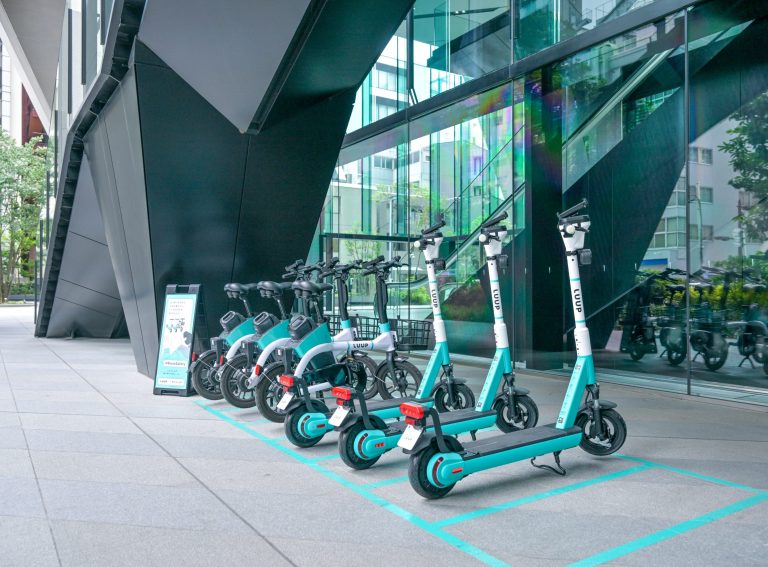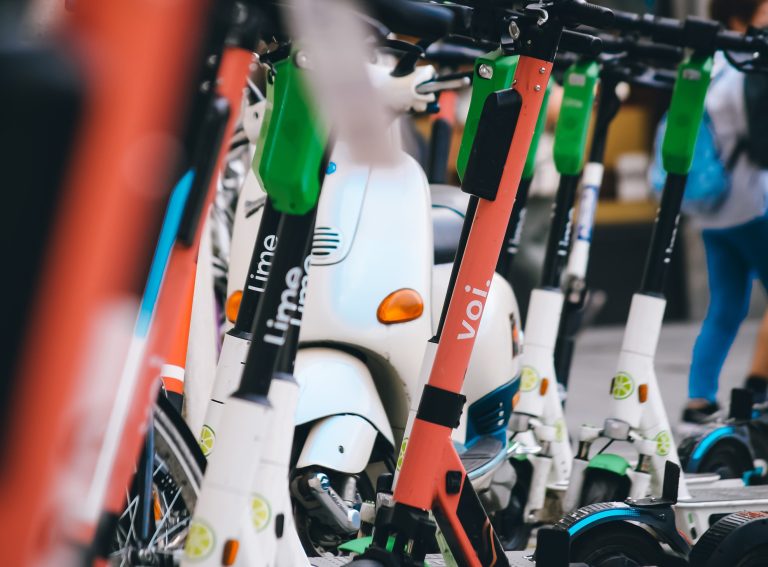The Stafford and Newcastle-under-Lyme shared e-scooter trials have become the first in the UK to close following a full year of operations.
They are the first of the trials taking place in around 50 towns and cities in England to close on the originally planned dates, with a number of others having being extended beyond the initial 12 months, and a couple (Coventry City Centre and Redcar) closing early.
The closures are a reminder that the trials are intended to gather data and allow the trial sponsor, the Department for Transport, to make a decision on future legislation for both private and shared e-scooters in the UK.
The Newcastle-under-Lyme and Stafford operations, run by Zwings and Ginger respectively, were both publicly financed (at least in part) by the Department of Transport as part of Connected Places Catapult’s SIMULATE incubation fund.
Newcastle-under-Lyme also received additional public funding to fund access to the e-scooter by certain population groups.
Journeys
The council has confirmed there have been just over 40,000 journeys across the two fleets, in the year. Zag Data indicates there was an average of 150 e-scooters available, across both operations and across the year.
This suggests a daily average of just over 110 journeys across both towns, or 0.8 journeys per e-scooter per day – some of the lowest average daily numbers of any UK fleet and in stark contrast to the five trips per day seen by some fleets elsewhere, such as in Nottingham.
The average ride distance was however an encouraging 4.9km – suggesting not just walking trips are being replaced.
Keele University is a campus site, around 4km from Newcastle-under-Lyme (an ideal distance for e-scooters) and was part of the Zwings fleet “geofence” – this will be perhaps the biggest loss in local mobility options caused by the closure.
Fleet sizes
Both the Stafford and Newcastle-under-Lyme were small, particularly compared with the burgeoning operations in many other UK towns.
Even at their maximum size, they were in the bottom third of the UK operator size ranking. This reflects the fact that they were serving relatively small populations.
For Stafford, Zag Data suggests that, following a September 2020 launch with 20 e-scooters, a maximum of 83 e-scooters were made available in November, but this number gradually dwindled down to 59, before closure – suggesting a relatively low 25 per cent attrition rate over the year.
The gradual decline is in contrast with many of the other fleets in the UK that have seen several stages of expansion and are now at their largest numbers ever but also contrasts with other smaller fleets that have seen frequent pauses and sharp number drops, potentially due to excessive vandalism or mis-use. In short, the data suggests Stafford seems to have treated its e-scooters well but didn’t use them much.
For Newcastle-under-Lyme, the initial launch of 35 scooters in September was boosted up to 70 in November, and then was expanded further in May this year to 137, along with a significant expansion in the operating area to cover additional residential areas and a business park, before halving this month as operator Zwings started to move their assets to storage or their other fleets in the UK, in advance of the closure.
The future
Ginger have publicly stated that they intend to launch a dockless shared e-bike scheme in Stafford, this autumn, to allow them to compare and contrast uptake of e-bikes compared to e-scooters.
Zag Daily understands that Zwings will be doing the same too – the firm confirmed that it will “look forward to continuing on to the next phase of the innovation journey in Staffordshire with e-bikes”.
It is encouraging that both operators are still interested in operating in the Staffordshire area despite the low uptake of the e-scooters. If designed well, shared e-bike schemes can have a role as a mobility option in every large town or city.
E-bikes are not subject to the same restrictive trial legislation that impacts e-scooter schemes and can operate in most public spaces as long as they do not cause obstruction.
If Ginger and Zwings do launch shared e-bike schemes, it will mean that the majority of the 12 UK e-scooter companies will be operating both e-scooter and e-bike schemes.




